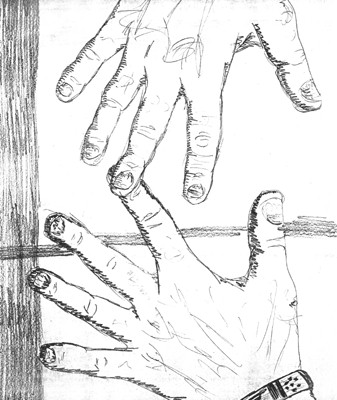All Nonfiction
- Bullying
- Books
- Academic
- Author Interviews
- Celebrity interviews
- College Articles
- College Essays
- Educator of the Year
- Heroes
- Interviews
- Memoir
- Personal Experience
- Sports
- Travel & Culture
All Opinions
- Bullying
- Current Events / Politics
- Discrimination
- Drugs / Alcohol / Smoking
- Entertainment / Celebrities
- Environment
- Love / Relationships
- Movies / Music / TV
- Pop Culture / Trends
- School / College
- Social Issues / Civics
- Spirituality / Religion
- Sports / Hobbies
All Hot Topics
- Bullying
- Community Service
- Environment
- Health
- Letters to the Editor
- Pride & Prejudice
- What Matters
- Back
Summer Guide
- Program Links
- Program Reviews
- Back
College Guide
- College Links
- College Reviews
- College Essays
- College Articles
- Back
Celebrating Loving and the Lovings
In the summer of 1963, a summer known as “Freedom Summer” by many civil rights activists, Mildred Loving began to pen a letter to the then-current United States Attorney General. The twenty-two year old homemaker and wife of Richard Loving, bricklayer, wrote, “My husband is White. I am part Negro, & part Indian. Because of this fact, I have been banished from Virginia. ”
What she neglected to write was the events of the years preceding this letter. At age eleven, Mildred and Richard met when he went to hear her brothers’ band play at their home. They spent their childhood together—as much as possible in a segregated southern Virginia town. But in a complicated and messy time of segregated churches and schools, their love seemed to leap over all barriers.
In 1958, the young couple traveled to Washington, D.C. to cement their love in a marriage. However, when they traveled back to their home state of Virginia, their marriage was no longer valid, since Virginia had passed the Racial Integrity Act of 1924. This act separated society into two classes: “White” and “Colored.” To qualify for the “White” class, one had to be 99.99% European. If there was as much as one drop of non-White blood, then that person would be placed into the “Colored” class, which comprised everyone who was not White, from Native Americans to Asians. The Racial Integrity Act was in truth a supremacy act; government attempting to legislate an elite race.
This system strengthened the divide between the two classes by also making marriage between the two illegal. Virginian lawmakers such as Dr. Walter Ashby Pleckler used passages from texts as diverse as Darwin’s On the Origin of Species and the Bible to defend the Racial Integrity Act. Pleckler believed that only when the superior (e.g. whites) bred within themselves, could a “master race” be created; something not achieved with the inclusion of “weaker” (colored) blood. The Bible’s Parable of Phinehas, is a story in which the High Priest of Israel, Phinehas, witnesses an Israelite man and a Midianite woman cohabitating and promptly executes the lovers. As this story demonstrates, the criminalization of mixed-race couples was seen as saintly behavior. When Virginia spread this propaganda and criminalized interracial marriage, it made love a felony punishable by law. However, the actions of Mildred and Richard Loving would prove that love is not a privilege given to a select few, but a right that all states in America must address.
After receiving Mildred’s letter, Attorney General Robert Kennedy referred her to the American Civil Liberties Union (ACLU). The ACLU supplied lawyers to appeal their case, first to Judge Leon M. Bazile. He was the Virginia Circuit Court judge who sentenced the couple to exile, on the grounds that “Almighty God created the races—white, black, yellow, Malay and red—and He placed them on separate continents. The fact that he separated the races shows that he did not intend for the races to mix.”
The ACLU and the Lovings continued to appeal their case to higher and higher courts. In 1967, the Lovings’ case for love and equality went to the Supreme Court. In a unanimous decision, the Supreme Court decided that:
“Marriage is one of the "basic civil rights of man," fundamental to our very existence and survival....To deny this fundamental freedom on so unsupportable a basis as the racial classifications embodied in these statutes, classifications so directly subversive of the principle of equality at the heart of the Fourteenth Amendment, is surely to deprive all the State's citizens of liberty without due process of law. The Fourteenth Amendment requires that the freedom of choice to marry not be restricted by invidious racial discrimination. Under our Constitution, the freedom to marry, or not marry, a person resides with the individual and cannot be infringed by the State.”
Because of the bravery and love between Richard and Mildred Loving, marriage is a right protected by the US Constitution. However, even today, almost fifty years after the marriage of the Lovings, this right is limited.
On March 29, 2013, the Supreme Court will hear the case challenging the constitutionality of the Defense of Marriage Act (DOMA). DOMA prevents the federal government from allowing the right of marriage to same-sex couples because marriage is defined as between a man and a woman.
This is tantamount to the Loving’s case. The “moral correctness” of love between two people is irrelevant. Based on the legal precedent set by Loving vs. Virginia, marriage is legal for all. There can be no disagreement.
On the 45th anniversary of the Loving v. Virginia, June 12th, 2012, Mildred Loving made a speech, saying, “I believe all Americans, no matter their race, no matter their sex, no matter their sexual orientation, should have that same freedom to marry. That’s what Loving, and loving, are all about.”
There is no better tribute to the sacrifices Mrs. Loving endured to make marriage a universally recognized right than if the Supreme Court interpreted DOMA as unconstitutional.

Similar Articles
JOIN THE DISCUSSION
This article has 0 comments.
